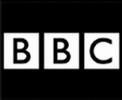YouTube makes deal with BBC: Who wins?


Mark Thompson, Director-General of the BBC, did offer the typical “ground-breaking partnership” exclamation, however.
How ground breaking? Not very from the YouTube side.
AUTHORIZED CONTENT ON YOUTUBE: The non-exclusive partnership will create branded BBC “Channels” on YouTube; Users will be able to comment on clips, rate them, recommend them to friends and post their own video responses to communicate with the BBC and other viewers.
UNAUTHORIZED CONTENT ON YOUTUBE: Ashley Highfield, BBC's director of Future Media and Technology, said the BBC would not be hunting down all BBC-copyrighted clips already uploaded by YouTube members - although it would reserve the right to swap poor quality clips with the real thing, or to have content removed that infringed other people's copyright, like sport, or that had been edited or altered in a way that would damage the BBC's brand.
What about the BBC?
BENEFITS FROM YOUTUBE: The aim is to offer audiences a taste of BBC programming with clips which will (subject to the conclusion of the ongoing PVT process) link them to the BBC’s proposed iPlayer service on bbc.co.uk. For BBC Worldwide the partnership forms part of a strategy to bring great British content to new audiences around the world through its global TV channels and its proposed new digital businesses - the commercial iPlayer and the commercialisation of international traffic to bbc.co.uk. Increasing levels of funds will be returned to the BBC for investment in new programming.
Clips on BBC News (available to users outside the UK only) and “BBC Worldwide” will benefit from Google and YouTube's advertising platforms, generating new revenues for investment in BBC programme development and creation. Advertising will be governed by a comprehensive set of guidelines.
IS ALL GOOD? NO, “the BBC should have taken notice that most of the other big broadcasters have turned their nose up at this and previous YouTube deals,” concludes Ben Metcalf, a six year veteran of the BBC; BBC News Website and BBC’s Future Media and Technology.
Why is it NOT a very good deal?
METCALF: The BBC is going to show trailers and clips on YouTube, rather than full-length content. Although YouTube is very good at facilitating the viral nature in which this kind of content can be shared, it’s ultimately promotional material and as such I think the BBC is missing out not getting it’s act together and having a way this can be displayed in a custom BBC-embedded player that can properly link back to the relevant BBC site for the clip. By putting the clips on YouTube the BBC is missing out on a fantastic cross-promotion opportunity by having the clips source directly in the site they originate from.
My guess is that there are no plans, or capacity, to build such a platform and as such doing a deal with YouTube has been decided as an easy way out. Or cop out, as I would call it.
The other issue is that the BBC has waived it’s right to sue YouTube for any copyright breaches of BBC material on YouTube. It seems like anytime Google/YouTube do a deal with a media company or rights holder they demand they sign a waiver if they want to play ball with YouTube.
I really don’t see what the BBC will gain from this deal in the long term, and feel it would be far better off if it built it’s own strategy and well-executed solution for people who wish to share short clips of BBC material on their blogs, webspace and other places. Such demand is not going to go away, and will never be fully catered for to the BBC’s maximum benefit on YouTube.
Perhaps the BBC should have consulted with Viacom before agreeing to a deal which may be to the maximum benefit of YouTube.